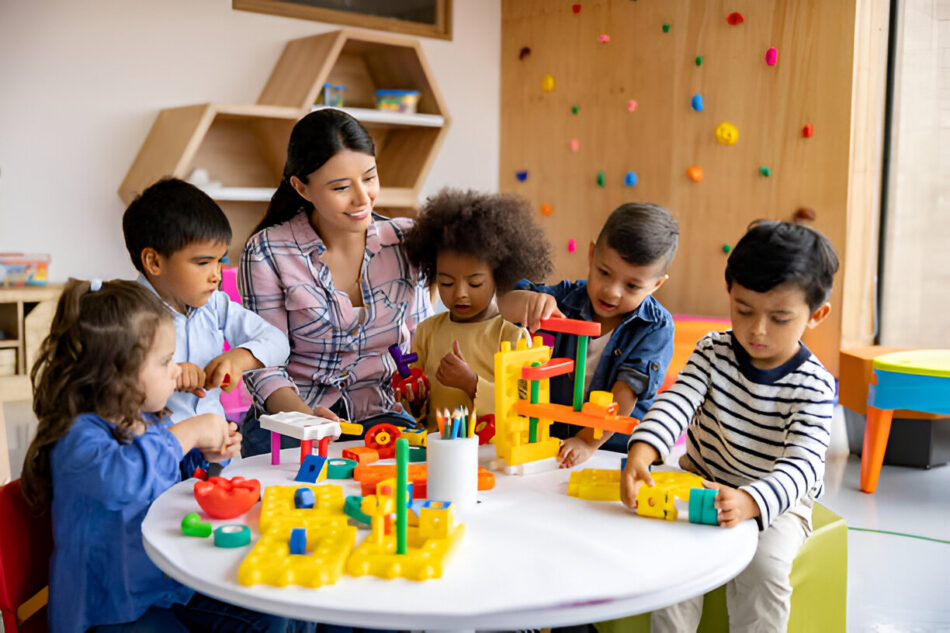Choosing the right preschool is one of the most important decisions parents make in their child’s early years. Plano, Texas, offers a wide range of preschool options, each with unique teaching styles, learning environments, and educational philosophies. Understanding these differences helps parents make informed choices. This guide explores essential details about Plano preschools in the USA, from curriculum types to enrollment considerations.
The Role of Preschools in Early Childhood Development
Preschools bridge the gap between home learning and formal schooling. They focus on developing social skills, emotional growth, and early academic abilities. Children in preschool learn to interact with peers, follow instructions, and explore creativity. In Plano, preschools often combine structured lessons with play-based activities. This balance supports both cognitive and emotional development.
Types of Preschools in Plano
Parents will find a variety of preschool types in Plano. Each type has its own approach to learning:
1. Traditional Preschools
These follow a structured curriculum focusing on reading readiness, early math, and science. Activities are teacher-led, with clear schedules and academic goals.
2. Montessori Schools
Montessori preschools emphasize self-directed learning. Children choose activities that match their interests. Teachers act as guides rather than lecturers. The environment encourages independence and problem-solving.
3. Play-Based Programs
Play-based preschools focus on hands-on learning. Games, creative projects, and social interaction are core elements. This approach nurtures curiosity and imagination.
4. STEM-Focused Preschools
These integrate science, technology, engineering, and math into early education. Children engage in experiments, building projects, and problem-solving activities.
5. Faith-Based Preschools
Some Plano preschools include religious instruction alongside academic lessons. They often incorporate moral education and community activities.
Curriculum and Teaching Methods
Preschool curriculums in Plano vary, but most align with early learning standards in the USA. Key focus areas include:
- Language and Literacy – Storytelling, phonics, and early writing skills.
- Math Skills – Counting, sorting, and pattern recognition.
- Science and Nature – Exploring the environment, simple experiments.
- Arts and Crafts – Drawing, painting, and creative projects.
- Physical Development – Outdoor play, fine motor skill activities.
Teaching methods often blend structured lessons with exploratory learning. This combination keeps children engaged while building core academic foundations.
Class Size and Teacher Ratios
Class size is an important factor when evaluating preschools. Smaller classes mean more individual attention. In Plano, teacher-to-student ratios often follow state guidelines, ensuring each child gets adequate supervision. Parents should ask about group sizes during visits, as this can affect learning quality and safety.
Safety and Facility Standards
Safety is a top priority for preschools in the USA. Plano preschools typically follow strict health and safety regulations, including:
- Secured entry systems.
- Regular cleaning and sanitization.
- Playground safety inspections.
- Emergency preparedness plans.
Parents should confirm the school’s licensing status and ask about safety policies during enrollment discussions.
Social and Emotional Development Opportunities
Preschools are more than academic preparation. They help children develop empathy, cooperation, and self-control. In Plano, many programs encourage group activities, storytelling circles, and collaborative projects. These experiences build confidence and prepare children for elementary school dynamics.
Enrollment Requirements and Schedules
Enrollment policies vary by preschool. Some require children to be potty-trained, while others accept younger toddlers. Parents may need to provide immunization records, proof of residency, and emergency contacts.
Schedules can range from half-day to full-day programs. Some schools offer extended care for working parents. Flexible scheduling helps families find the right balance for their routines.
Tuition and Financial Considerations
Preschool tuition in Plano depends on program type, schedule, and additional services. While costs vary, many schools offer part-time options to reduce expenses. Some families may qualify for scholarships or state-funded early education programs. Parents should also consider supply fees, field trip costs, and meal plans when budgeting.
Parent Involvement and Communication
Strong parent-school communication supports a child’s success. Many Plano preschools encourage parent participation through events, volunteer opportunities, and progress meetings. Digital platforms, newsletters, and parent-teacher conferences help keep families informed about their child’s development.
How to Choose the Right Plano Preschool
When selecting a preschool, parents should:
- Visit multiple schools to compare environments.
- Observe classroom interactions.
- Ask about the curriculum and daily routines.
- Review safety procedures.
- Discuss teacher qualifications and experience.
Taking time to research ensures the chosen preschool matches the child’s personality, needs, and family values.
Conclusion
Plano preschools offer diverse learning environments that cater to different educational philosophies. By understanding program types, curriculum options, and safety standards, parents can make informed choices. Early childhood education is a foundation for lifelong learning, and the right preschool experience can set children on a path to success.
 WhatsApp Us Now
WhatsApp Us Now








